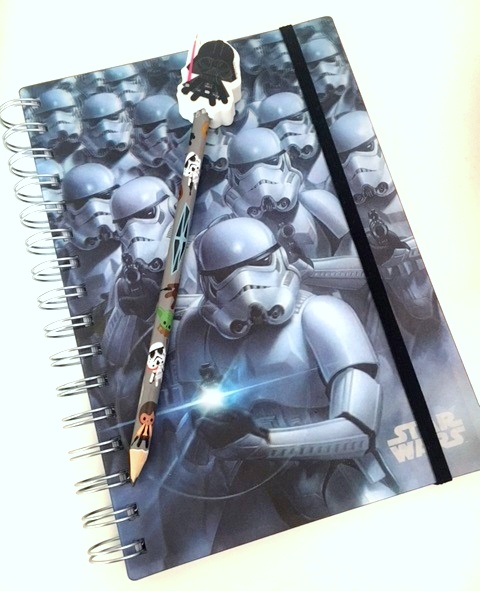With the effects of his delayed gross motor development still very much present in his everyday life, my youngest, who is now eight and a half, is becoming increasingly reluctant to write.
You can read more about his developmental delays, hypermobility and food intolerances on my blog, A ‘Free From’ Life, but for today, I am focusing on his issues with fine motor control, in particular, with writing.
As he moves up the school years, the pressure to write more and in much more detail continues to rise. No longer is he able to get away with writing a few sentences and this, unfortunately, is a problem we need to address.
Going back to preschool times, my son didn’t settle on which hand he was going to write with. The preschool teachers wanted us to encourage him to use one or the other, but the problem was, he could use both just as well. Eventually, he settled on the left hand, just before the start of reception.
During the reception year, the children weren’t taught cursive writing, only how to print and so, by the time he entered year one, the written skills my son presented were a mix of back-to-front letters and large, messy text.
For some reason, in year one, the children were suddenly expected to write cursive having not been taught how to do this, but my son, wasn’t actively encouraged, not until he reached year two. Why was this? Well, it was because of the SATS, which meant the children would be assessed on not only their use of language, but their handwriting too.
This meant us getting help outside of school in the form of a tutor, who took my son back to basics in order to re-learn (or undo, if you like) everything he had picked up previously before moving on to writing joined up. For him, it was a slow and painful process and as he improved, although he was able to write beautifully for the tutor and during his session, when it came to writing in class time, he would revert to print – messy, big print.
By the end of year three, we were just beginning to see him using cursive without having to think too much about it, but unfortunately, writing has become a slow and painful process for him.
Why does writing ability even matter?
Schools still put an awful lot of emphasis on neat handwriting. I wasn’t sure why it is seen as so important, but here’s five reasons that support the need to teach it.
Being under pressure to write so perfectly means that for my son and others like him, the difficulty lies with getting his ideas down on to paper quick enough. This means he’s more likely to give up. Believe it or not, it is actually hard work for him to write. The words don’t flow straight from his brain through the pencil and with so much concentration required to form the letters, he can’t focus on the ideas he wants to communicate. What he tends to do, therefore, is the absolute minimum he can get away with, but this isn’t going to help him progress his English skills is it?
I want to help make writing easier for him.
As a writer, it doesn’t always follow that my children will be as enthusiastic about this activity as I am. Being a published author may offer up some encouragement, yet it could however, have the opposite effect of further increasing the pressure.
I am also a children’s creative writing tutor and I run regular workshops on how to come up with ideas and form them into a story. I must be able to do something to help him surely? I decided to act.
We went out and bought a brand spanking new notebook and pencil set (Star Wars, no less).

I’ve made a deal with my son that he will use this new notebook as a journal – just one page a night is all I ask for – but I would like him to record something about his day, whether it is what he had for lunch, an activity he took part in or a lesson he particularly enjoyed.
The actual words don’t really matter, to be fair. It’s more about the practice of getting those words from his head and onto paper and about making this process as easy as possible. The only way you get good at something is to practice, right?
I’m not going to read his journal, nor am I going to assess the handwriting (although I will ask him to make sure he writes in cursive as a matter of course). My hope is, over time, it will become easier to put thoughts to paper without having to put that extra focus onto word formation.
Have you experienced similar problems with your children? If so, how did you deal with them?
My creative writing workshops are practical-based, without a huge emphasis on writing, believe it or not. I’m teaching children the skills to come up with ideas and structure and plan their stories, by challenging their sensory and thinking abilities. It’s not all about how many words they can put onto paper – I don’t want to put that sort of pressure on them. However, as they develop their language skills and the ability to formulate their ideas, being able to write them down, should follow. These are the foundations for writing engaging stories that I hope the children who come to the workshops can build upon.

0 Comments